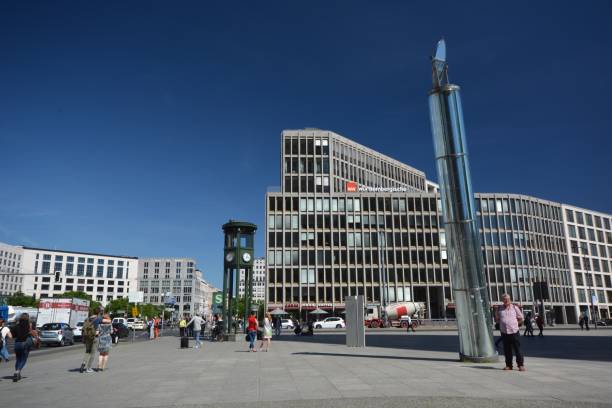Jobs
Unskilled Jobs in Germany for Africans: Key Sectors, Salaries, and Visa Process
Unskilled Jobs in Germany for Africans: Key Sectors, Salaries, and Visa Process
Germany, the largest economy in Europe, has a significant demand for unskilled labor across various sectors. With its thriving industries, strong labor laws, and high living standards, Germany presents a favorable environment for immigrants, especially Africans seeking better opportunities. This article will explore the unskilled job sectors available in Germany, discuss salary expectations, and outline the visa process to help you navigate your path to employment in this dynamic country.
Unskilled Job Sectors in Germany
Germany’s economy is characterized by a diverse range of industries that rely on unskilled labor. Here are some of the primary sectors where unskilled jobs are in demand:
1. Agriculture
Germany has a robust agricultural sector, employing thousands of workers, especially during peak seasons. Unskilled workers are often needed for tasks such as planting, harvesting, and packaging fruits and vegetables. Farms located in regions like North Rhine-Westphalia, Bavaria, and Baden-Württemberg frequently hire seasonal workers, providing excellent opportunities for Africans seeking short-term employment.
2. Construction
The construction industry in Germany is booming due to ongoing infrastructure projects and urban development initiatives. Unskilled laborers are required for various tasks, including site preparation, scaffolding, and general labor. Companies are often on the lookout for workers who are physically fit and willing to learn. Major cities like Berlin, Munich, and Frankfurt are particularly active in this sector.
3. Manufacturing and Warehousing
Germany is renowned for its manufacturing capabilities, producing everything from automobiles to electronics. Unskilled workers are needed in factories for assembly lines, packaging, and quality control. Additionally, warehouses across the country require laborers for inventory management and order fulfillment. This sector offers consistent employment opportunities, particularly in industrial regions such as the Ruhr area and Bavaria.
4. Hospitality and Tourism
The hospitality industry in Germany thrives on domestic and international tourism, leading to a demand for unskilled workers in hotels, restaurants, and cafes. Roles in this sector include housekeeping, kitchen staff, and service personnel. Cities with high tourist traffic, such as Berlin, Munich, and Hamburg, provide numerous opportunities for those interested in hospitality jobs. Knowledge of German can enhance job prospects in this field.
5. Cleaning and Maintenance
Cleaning and maintenance services are essential in various settings, including offices, hospitals, and public spaces. Unskilled workers can find employment as cleaners or janitors, performing tasks that maintain cleanliness and hygiene. This sector typically requires minimal experience, making it accessible for many immigrants.
Salary Expectations for Unskilled Jobs in Germany
Salaries for unskilled jobs in Germany vary depending on the sector, location, and specific roles. However, the country has established a minimum wage that applies to most workers, which is a significant factor to consider. As of 2024, the minimum wage in Germany is approximately €12 per hour. Here’s a breakdown of salary expectations for different unskilled sectors:
1. Agriculture
In agricultural jobs, workers can expect to earn between €9 and €12 per hour, depending on the season and type of work. Seasonal positions, such as fruit picking, may offer higher wages during peak times, especially when there is a labor shortage.
2. Construction
Unskilled laborers in the construction sector typically earn between €12 and €16 per hour. Those working on larger projects or in urban areas may receive higher wages due to increased demand for labor. Additionally, overtime pay can significantly boost earnings.
3. Manufacturing and Warehousing
Salaries for factory workers and those in warehouses generally range from €11 to €15 per hour. Workers with specific skills or experience in operating machinery may earn more, while entry-level positions may start at the minimum wage.
4. Hospitality and Tourism
In the hospitality sector, unskilled workers can expect to earn between €10 and €14 per hour. Jobs in larger cities or high-end establishments may offer better pay, especially for roles that involve direct customer interaction.
5. Cleaning and Maintenance
Cleaning and maintenance positions typically offer hourly wages ranging from €10 to €12. While these roles may not provide high earnings, they often come with flexible hours, making them attractive for those seeking part-time work.
Visa Process for Unskilled Workers in Germany
For Africans wishing to work in Germany, understanding the visa process is crucial. The German government has implemented various visa options to facilitate the entry of foreign workers, including unskilled labor. Below are the main visa pathways available:
1. EU Blue Card
The EU Blue Card is primarily designed for skilled workers but can also apply to unskilled workers in specific circumstances. To qualify, applicants must have a job offer from a German employer and meet minimum salary requirements, which may vary by sector.
- Eligibility: Generally, applicants must possess relevant qualifications or experience in their field. However, if unskilled workers can secure a job with a salary that meets the Blue Card threshold, they may qualify.
- Duration: The Blue Card is valid for four years and can be extended or converted to a permanent residency after 33 months of employment (or 21 months with sufficient German language skills).
2. Work Visa for Employment
Unskilled workers can apply for a standard work visa for employment. This process involves securing a job offer from a German employer who will sponsor the visa application.
- Eligibility: To obtain this visa, applicants must provide proof of employment, a valid passport, and, in some cases, a criminal record check.
- Duration: The work visa is typically valid for one to two years, depending on the employment contract. Extensions are possible if the employment continues.
3. Job Seeker Visa
The Job Seeker Visa allows foreign nationals to enter Germany for up to six months to search for employment. While this visa does not allow for work during the job search, it provides an opportunity to find a suitable position.
- Eligibility: Applicants must demonstrate sufficient funds to support themselves during their stay and hold a recognized qualification or degree.
- Duration: The visa is valid for six months, and if a job offer is secured, the applicant can transition to a work visa.
4. Seasonal Work Visa
For those looking for temporary employment, such as in agriculture, the Seasonal Work Visa is an option. This visa allows workers to engage in seasonal jobs for a limited period.
- Eligibility: Applicants must have a job offer for seasonal work and meet specific requirements set by the German government.
- Duration: This visa is typically valid for up to six months and can be extended in some cases.
Tips for Africans Seeking Unskilled Jobs in Germany
1. Learn Basic German: While many Germans speak English, knowing the German language can significantly enhance your job prospects. Language skills can also help you integrate into the community and make everyday interactions smoother.
2. Research Job Markets: Before applying, research different job markets within Germany. Understanding which cities or regions have the highest demand for unskilled labor can help you target your applications more effectively.
3. Network with Local Communities: Connecting with local African communities or expatriate groups can provide valuable resources, advice, and job leads. Networking can also help you adjust to life in Germany more easily.
4. Prepare a Strong Resume: Even for unskilled positions, a well-structured resume is essential. Highlight your reliability, work ethic, and any relevant experience or skills. Tailor your resume to each job application to increase your chances of being noticed.
5. Be Open to Various Roles: Flexibility can be a significant asset when job hunting. Being open to various unskilled roles may increase your chances of finding employment and gaining valuable experience.
Conclusion
Germany presents numerous opportunities for Africans seeking unskilled jobs across various sectors, including agriculture, construction, manufacturing, hospitality, and cleaning. With competitive salaries and a structured visa process, working in Germany can provide a pathway to a better quality of life and professional development.
By understanding the job market, salary expectations, and visa requirements, you can navigate your way to employment in Germany successfully. With determination and the right preparation, you can turn your aspirations into reality and embark on an exciting journey in one of Europe’s leading economies.







